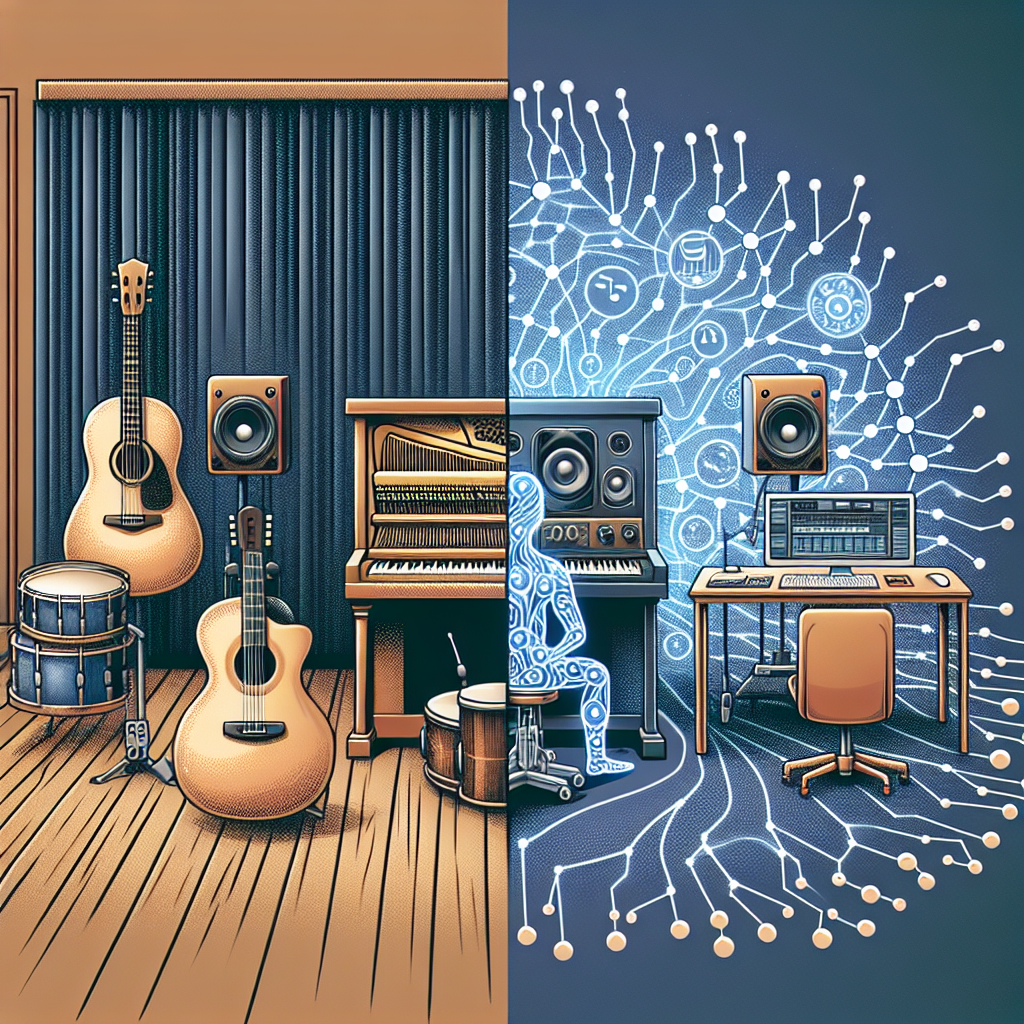Artificial Intelligence (AI) has been making waves in various industries, and the music industry is no exception. From helping musicians create new compositions to enhancing the production process, AI has had a significant impact on music creation and production. In this article, we will explore the ways in which AI is changing the landscape of music and examine some of the common questions people have about AI in music.
AI in Music Creation
One of the most exciting applications of AI in music is its ability to assist musicians in creating new compositions. AI algorithms can analyze vast amounts of musical data to generate melodies, harmonies, and rhythms that can inspire musicians and help them break through creative blocks. For example, companies like Amper Music and AIVA are using AI to create original music tracks for various purposes, from commercial advertisements to film scores.
AI can also help musicians with the songwriting process by providing suggestions for lyrics or chord progressions. Tools like IBM’s Watson Beat and Google’s Magenta Studio are using AI to generate musical ideas based on input from the user, allowing musicians to experiment with different sounds and styles.
Another way AI is revolutionizing music creation is through the use of generative adversarial networks (GANs), which can create new music by learning from existing compositions. This technology allows musicians to explore new musical possibilities and push the boundaries of traditional music genres.
AI in Music Production
In addition to aiding in music creation, AI is also transforming the production process. AI-powered tools can analyze audio recordings to identify and categorize individual sounds, making it easier for producers to mix and master tracks. For example, companies like LANDR and iZotope are using AI algorithms to automate the mixing and mastering process, saving musicians time and money.
AI can also help musicians and producers with tasks like sound design and audio editing. Tools like Spotify’s Soundtrap and Native Instruments’ Komplete Kontrol use AI to suggest sounds and effects that complement a track, allowing musicians to experiment with different textures and moods.
Furthermore, AI technology can analyze the emotional content of music to help artists understand how their audience is responding to their work. By analyzing data from streaming platforms and social media, AI algorithms can provide insights into which songs are resonating with listeners and help artists tailor their music to their audience’s preferences.
Common FAQs about AI in Music
As AI continues to play a larger role in music creation and production, many people have questions about how this technology works and what it means for the future of music. Here are some common FAQs about AI in music:
1. How does AI create music?
AI creates music by analyzing vast amounts of musical data, such as existing compositions and audio recordings. By learning patterns and structures from this data, AI algorithms can generate new melodies, harmonies, and rhythms that sound like they were composed by a human.
2. Can AI replace human musicians?
While AI can assist musicians in creating and producing music, it is unlikely to completely replace human musicians. AI lacks the emotional intelligence and creativity that humans bring to music, and many artists see AI as a tool to enhance their creativity rather than replace it.
3. Is AI in music legal?
Using AI to create music raises questions about copyright and ownership. In most cases, the copyright for AI-generated music belongs to the person or company that created the AI algorithm. However, there are ongoing debates about how to regulate AI-generated music and ensure fair compensation for artists.
4. How is AI changing the music industry?
AI is revolutionizing the music industry by making it easier for musicians to create and produce music. AI-powered tools can automate tasks like mixing and mastering, allowing artists to focus on their creative vision. AI is also helping artists reach new audiences by analyzing data and providing insights into listener preferences.
5. What are the ethical implications of AI in music?
As AI becomes more prevalent in the music industry, there are ethical considerations to take into account. For example, using AI to replicate the style of a deceased artist raises questions about authenticity and artistic integrity. It is important for artists and producers to be transparent about the role of AI in their music and to respect the creative legacy of artists who came before them.
In conclusion, AI is having a profound impact on music creation and production, offering new possibilities for artists and producers to explore. While AI technology has the potential to revolutionize the music industry, it is important for artists to approach it with caution and respect for the creative process. By embracing AI as a tool to enhance their creativity, musicians can unlock new opportunities and push the boundaries of what is possible in music.

